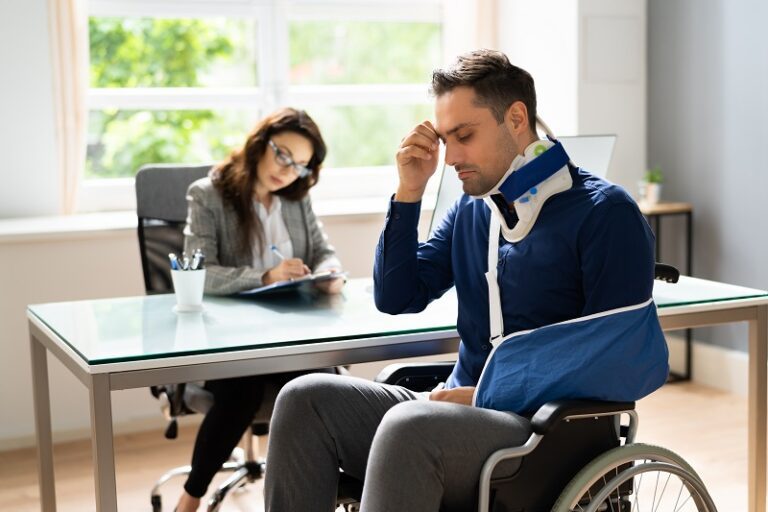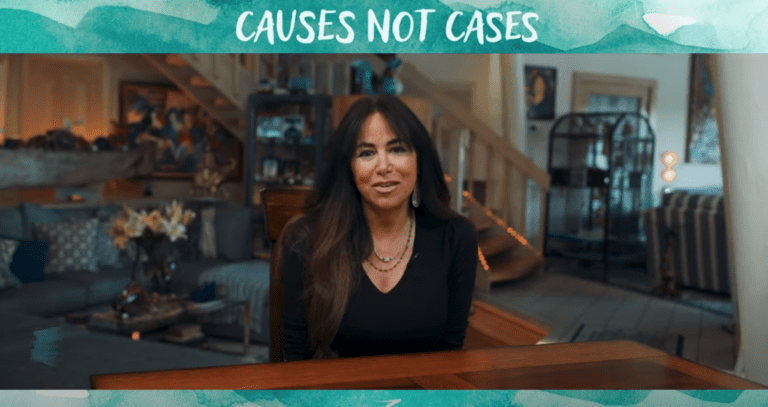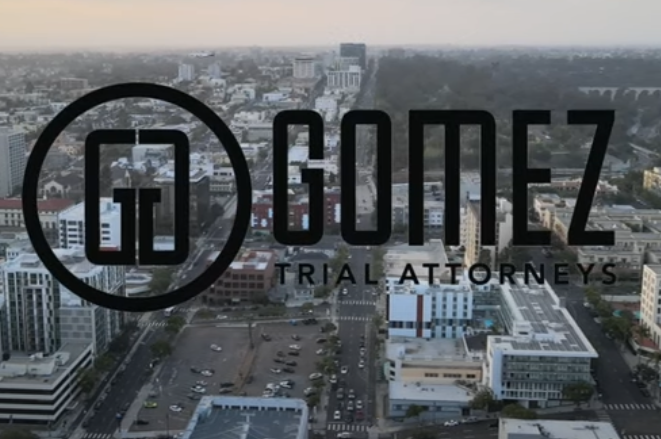Whether it is for work or pleasure, most of us drive every day. Perhaps we cruise Highway 1 along the California coast. In Southern California, we can enjoy mountains, deserts, and beaches, all within an easy drive. It’s easy to take the satisfaction and convenience of driving for granted. However, we all know that car crashes happen with shocking regularity.
Statistics show that the average driver will be involved in an accident about once every 17.9 years, which means that most people will have three or four car accidents in a lifetime. So even if you are a careful driver, you may suddenly find yourself in a crash. On average, there are 6 million car accidents in the United States each year. According to statistics provided by the National Highway Traffic Safety Administration (NHTSA), 37,133 people lost their lives in car crashes in 2017. In San Diego, there were 9,476 fatality and injury collisions in 2016.
No matter what type of car accident, it is traumatic every time. Physically and emotionally, you are trying to come to grips with what just happened. You may feel distressed, confused, or in pain. After an accident, it is hard to know what to do. Speaking with a car accident attorney can get you on the right track and more often then not consultations are free.
[lwptoc]
First Steps to Take After a Car Accident
Stop. It may sound obvious, but do not drive away after an accident. Always stop if you are involved in an accident; this is your legal obligation. Even if you do not think there was any damage, if you have had a collision, you need to stop your car. If the other driver leaves the scene of the accident, stay, and report the incident.
Take stock of the situation. Immediately after a crash, your adrenaline is flowing. Your body responds to a traumatic experience by going into a “fight or flight” mode. It does this by releasing adrenaline and cortisol into your bloodstream. This causes our air passages to dilate and our blood vessels to compress and push blood to our major muscle groups. Some people hyperventilate. You must remain calm and alert for your safety and that of others involved in the accident. However, that is not easy. If you are breathing rapidly, take some deep, soothing breaths. If you hyperventilate, you could pass out. After you are a little calmer, assess the situation of the car accident. Are you injured? Is anyone in the car with you injured? How about anyone else involved in the accident? You may be angry with the other driver, but make your first priority everyone’s safety.
If anyone is injured, call an ambulance right away. Keep in mind that others may appear to be unharmed, but many people experience shock following an accident, which is potentially serious. If someone is unconscious or you think someone has suffered a neck or back injury, wait until medical professionals arrive at the scene and let them care for the injured. Moving someone with neck or back injuries can cause further damage. Remember that some injuries do not become evident until hours or even days after the accident, so it is always a good idea to seek medical attention.
Move to a safe area. Once you have checked on yourself and others, take a look at the accident scene. Where did your car come to rest? If possible, move to the side of the road or another safe place. If you are unable to drive the car, leave it, and get yourself and others to safety. Did you hit something? Is your car burning or smoking? If so, get everybody out of the car and to a safe area. Are there dangers such as downed power lines? If so, remain in the vehicle until help arrives. Turn on your hazard lights and if possible, place warning devices around the accident scene.
Call the police. Even if the accident appears to be a minor one, call 911. The other driver may urge you not to report the accident. In some cases, this is because he or she may have problems with their driver’s license, car insurance, an outstanding warrant, a stolen vehicle, or one of many other reasons. However, there are many important reasons to call. Information contained in the police report will be useful for an insurance claim or future legal action, particularly when the accident was not your fault. When the police arrive, answer the officer’s questions simply and honestly. If you do not know the answer, say so.
Exchange information. If you are involved in an accident in California, you must provide certain information to the other parties involved, and the other parties must share information with you. You will need this information if you are required to file a report. If you are in a vehicle accident in California, you must report it within ten days, whether you caused the accident or not, if:
- Property damage in excess of $1,000 ($750 if the accident occurred before January 1, 2017) or
- Any injuries, even if they are minor or
- Any fatalities.
If you fail to report an accident, your license may be suspended. If another driver offers to pay for damages and asks you not to report an accident, you are still required to file the report in any of the situations outlined above.
Remember that usually, you do not know the other driver, so be aware of the dangers of identity theft. The other party needs your name, address, and phone number to give their insurance company, but they do not really need a picture of your driver’s license. The information which should be exchanged includes:
- Names, addresses, phone numbers;
- Driver license numbers;
- License plate numbers;
- The vehicle makes, models, and years;
- Car insurance information;
- Location of the accident.
Gather evidence. While you are still at the scene, collect as much evidence as possible. Make sure you get contact information for any witnesses. Take pictures of all the cars, from several angles, including the interior. Take photos of the accident scene, including any signs, traffic signals, or debris in the area. The other driver’s version of what happened may change later, so these details will help establish the facts.
Limit your conversation about the accident with the other party. Immediately following an accident, most people feel upset and overwrought. Even someone who is not at fault may automatically apologize or declare themselves at fault. For some people, their first impulse is to share pictures or details of the accident on social media. However, social media posts are probably not in your best interest, and may spread misinformation. It is best to avoid discussing fault when talking with others at the scene or in conversation with an insurance representative. The police and insurance claims representatives will investigate the facts and determine fault.
Consult a car accident attorney. It is important to consult an attorney before discussing the accident with other parties, including representatives of an insurance company, or signing any papers or release forms.
Common Car Accident Injuries
Even if you think you were not injured, it is a good idea to seek medical attention following a car accident. Your body’s stress hormones, which often kick in after an accident, can mask pain and you may not feel injuries until hours or even days after the crash. Tragically, even the more common causes of collisions are fatal. If you are lucky enough to survive a car accident, you may be left with serious injuries. These injuries may require long-term medical care and may change your life in many ways. It is important to keep records of all medical bills, including treatment at the scene of the accident, emergency care, rehabilitation, home care, statements, and prescriptions in the event of a future lawsuit. Victims may suffer severe injuries, such as:
- Brain injuries. Car accident victims often suffer a bump, blow or jolt to the head, resulting in a closed head injury. According to the Brain Injury Society, approximately 286,000 traumatic brain injuries result from car crashes each year. Symptoms of a brain injury sometimes don’t show up right away. The brain controls many parts of your body, so recovery is often slow and may be limited. Brain injuries include concussions, skull fractures, hematomas, and more.
- Spinal cord injuries. A spinal cord injury refers to a damaged spinal cord or the nerves involved with the spinal cord. Spinal cord injuries are very serious and may cause permanently limited mobility.
- Soft tissue damage. Collisions often happen with great force. These sudden violent motions may injure the neck (causing whiplash) or discs, joints or organs.
- Burn injuries. Even with the best burn treatments, severe burns are very painful and may result in permanent scarring.
- Scars. Broken bones, burns or lacerations may result in severe scarring, including facial scarring.
- Compound fractures. These are often caused by a piece of bone that breaks through the skin. Car accidents often cause fractures of the legs, arms, hands, and feet. They may require surgery and rehabilitation.
- Amputations.
The Basics of Personal Injury Lawsuits
California is considered a fault, or tort. state with regard to auto accidents. In a fault state, the injured person must prove that the other party was liable for his or her injuries before that person’s insurance will pay for damages. If someone else’s negligence caused your accident and your resulting injuries, you might be able to recover compensation under personal injury law. The definition of negligence is “a failure to behave with the level of care that someone of ordinary prudence would have exercised under the same circumstances.”
If you are filing a lawsuit based on someone’s negligence, you need to establish “the existence of a legal duty that the defendant owed to the plaintiff, defendant’s breach of that duty, plaintiff’s sufferance of an injury, proof that defendant’s breach caused the injury.” In some situations, more than one person or entity may be at fault for an accident.
Financial Responsibility for an Accident
California requires that drivers and vehicle owners carry the following minimum monetary limits: California Insurance Code §11580.1(b)
- $15,000 for injury or death of 1 person per accident
- $30,000 for injury or death of 2 or more persons per accident
- $5,000 for any property damage per accident
Damages
Damages are money awarded to compensate someone who has been injured due to the negligent actions of another party. These consist of losses the victim has suffered or will suffer in the future due to the accident, such as:
- Medical expenses: These may include the cost of an ambulance, emergency room treatment, hospital stays, prescription costs, therapy, long term care and more.
- Lost wages: Victims are entitled to compensation for current and future lost wages. Serious injuries may result in a diminished earning capacity.
- Pain and suffering: A car accident victim may be able to seek compensation for the pain and suffering they have endured as a result of the accident. Pain and suffering may include emotional or mental problems, such as depression and anxiety. It may also mean a loss of enjoyment of life.
- Loss of consortium: The spouse of an injury victim may be able to pursue compensation for the loss of family relationships and companionship caused by the injury.
In cases of egregious conduct on the part of the wrongdoer, the court may award punitive damages. The goal is to punish the defendant and deter others from bad conduct in the future. The court only awards punitive damages on rare occasions.
How a Lawyer Can Help
Dealing with the aftermath of an accident can be overwhelming. Like all states, California has a statute of limitations, which is the time limit for filing a lawsuit. If you or someone you love were injured in a car accident, consult an experienced car accident attorney at the Gomez Trial Attorneys right away. A car accident attorney can answer your questions, and help you understand the best path forward following a car accident.







